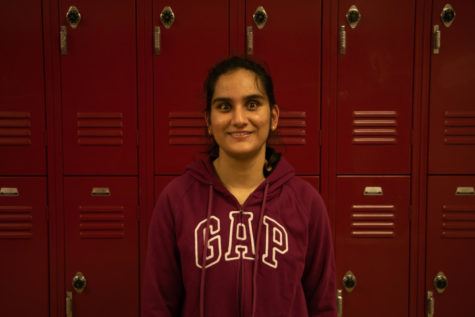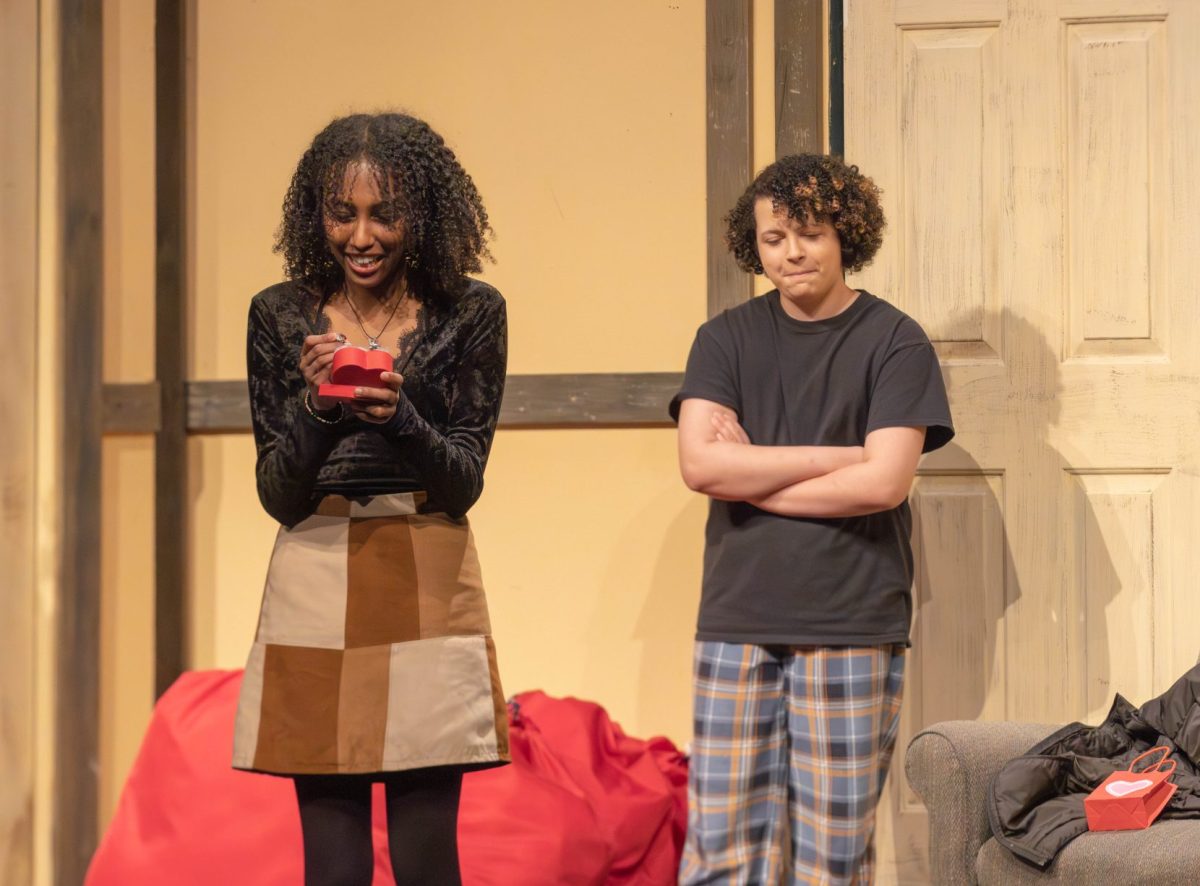Hey there, Hawks. First and foremost, congratulations! We have officially survived a semester like no other.
I know it’s been a crazy year so far. Yet, here we are, one semester complete and one more to go. That is reason for celebration, so congratulations once again. Anyway, this time in my little corner of randomness, we’re talking about… Strangers and faces. Yep, you read that right.
As I began spending time around people my age, it seemed as though most of them had been told by their parents or guardians, “don’t talk to strangers, especially those older than you.”
Unfortunately for me, I was an extremely social kid at the ripe young age of five, and not in a healthy way, either. Maybe my parents thought I was smart enough to know not to talk to strangers, or maybe they just didn’t get around to it, but we never had the “don’t talk to strangers because they might kidnap you” conversation. In my dysfunctional six-year-old eyes, everyone I encountered was a new best friend.
However, it didn’t take long to change my extreme social tendencies.
Why? Well, a large part of it has to do with an encounter with an old man in the middle of an airport.
Full disclaimer, I don’t actually think this man had any bad intentions. In fact, I think he was just curious, a tad bit bored and trying to help out a young child that he had just gotten to know. Whatever the case may be, my encounter with him has stuck with me.
I was only five years old at the time, and my family and I were at an airport, getting ready to come back to the United States after spending time in Nepal. My doctors had told my parents that I would slowly start getting my vision back, but seeing no improvement, they decided to come back and figure out what was going on.
The airport was huge, and my mom and I had gotten separated from my dad. Neither of my parents knew English all that well, and I was just beginning to speak it fluently from mimicking others’ pronunciation. Neither of them had a cell phone at the time either, and we were in a time crunch to get to the gate. So, with no way of contacting my dad to figure out where he might be in this massive airport, we decided to get on a train that we thought would get us to the gate, hoping that he would find his way there, too.
After a few minutes on this train, my mom realized that we might have gotten on the wrong train, and she leaned over to tell me she was going to try and get some help.
“Stay right here and I’ll be back,” she told me sternly.
Then, she was gone. For a few minutes, I dutifully sat still, adrenaline rushing through me in response to her stressed and urgent tone. Eventually, boredom began to set in, and I was frustrated that I couldn’t help in any way.
Listening to my surroundings, I discovered that I was sitting next to a man. I decided he was American, as he was singing under his breath in what appeared to be English.
My hopes soared. I could make a new friend and maybe he could help us find my dad. I reached over, tapping him on the shoulder. He stopped singing, and I introduced myself.
As I began talking to him, all the fear and anxiety I had been feeling was suddenly nowhere to be found. When I was learning English, one of my favorite ways to learn was to talk to native English speakers. Here was my chance to perfect my skills with a man who clearly knew the language well.
So, I told this random man my entire story. I told him about my vision issues, surgery, our return to Nepal and our current journey to figure out why my sight had not returned. As I rattled off all of this, he occasionally stopped me to ask me questions about my vision. Sensing his fascination, I did my best to explain how I saw the world with my five-year-old limited vocabulary.
“Do you feel people’s faces when you meet them?” he suddenly asked.
I didn’t know it then, but this would not be the last time I would get asked this question. However, at that moment, I was confused, having never been asked such a thing before. I shook my head. No?
Then, without warning, he reached out and gently took my hands in his.
“I don’t have gloves, but here,” he said.
Gloves? What did he need gloves for?
Before I knew it, he was guiding my hands to his face, and next thing I knew, I was feeling a rough beard. Misinterpreting my futile attempts to escape, he began giving me a tour of his face.
“This is a beard,” he said.
For 30 seconds, it continued like this, and I began to panic. Here I was, alone with this man on a train feeling his face, and I had no idea what to do.
Eventually, satisfied that I had gotten the full tour, he let go, my mom returned, we found my dad and caught the flight in time. However, those few minutes with this man have stuck with me.
Over the years, I’ve had a chance to reflect on his, and others, questions about whether I feel faces or not. The answer, if it isn’t obvious, is no. I do not feel faces, even with gloves on.
I can’t speak for the rest of the blind community, and there are probably people who do use this method to better understand those around them. However, I see it as an unnecessarily awkward social interaction when there are plenty that exist without me trying. It just seems a little weird to ask a person when meeting them for the first time, “Hey, can I feel your face?”
On top of all that, everyone seems to have eyeballs, ears, a nose and a mouth. I just don’t see the difference.
The real lesson here though is, don’t forget to ignore strangers, especially if they try to talk to you on a train.







